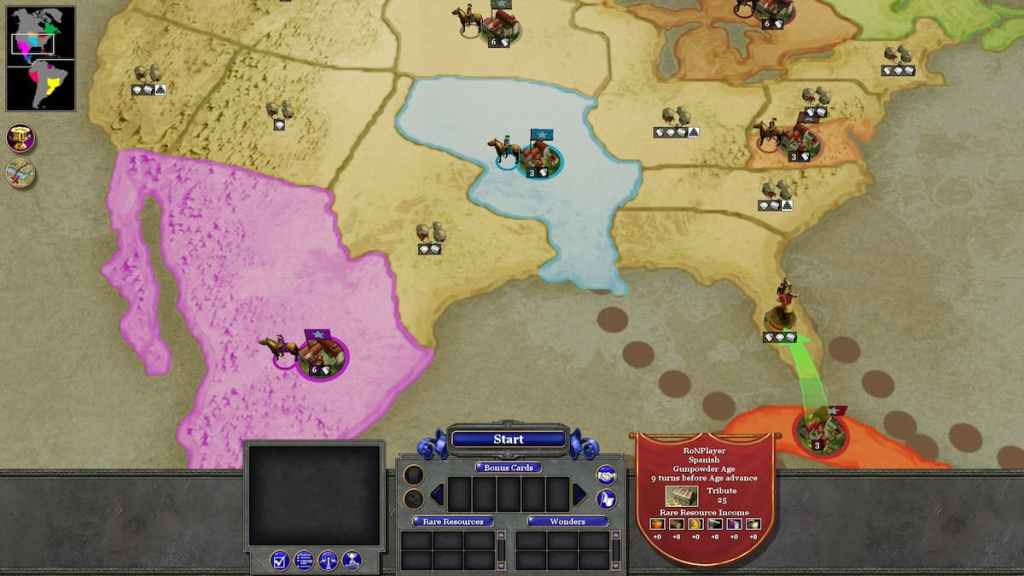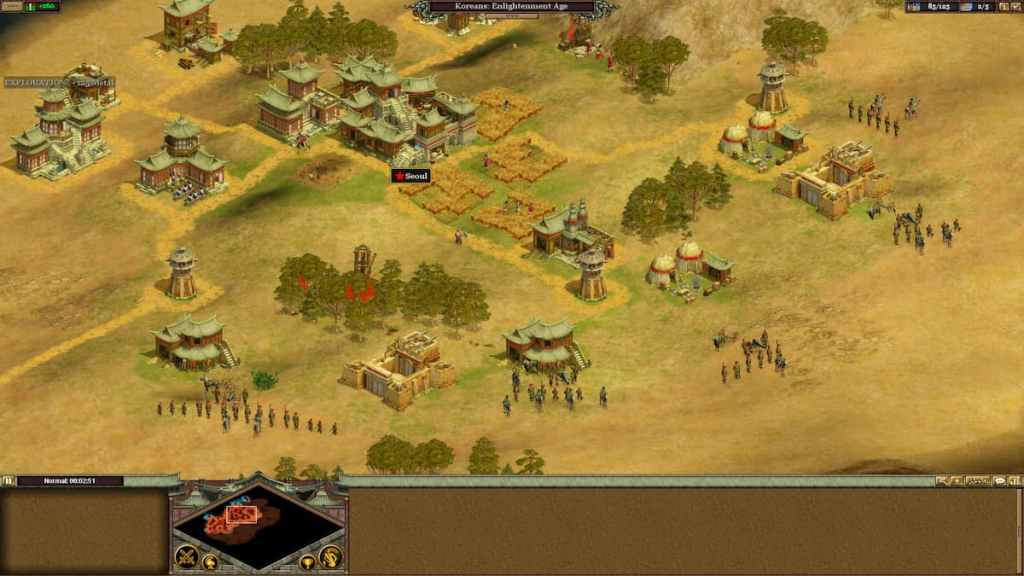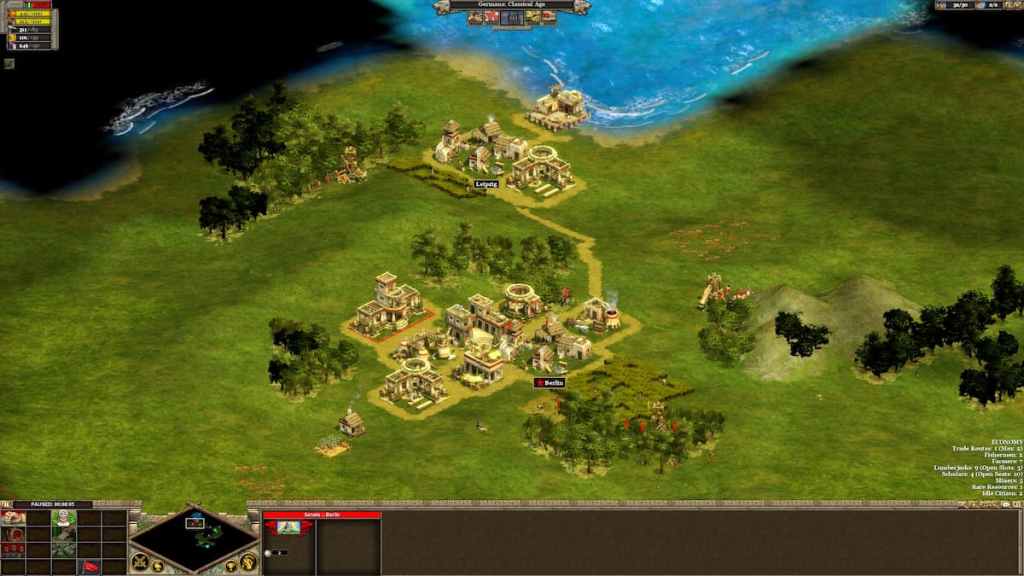Real-time strategy games have fallen out of the spotlight over the past decade and a half, with MOBAs and other variants, such as 4X and grand strategies, taking over.
And that’s completely fine—genres evolve, and so does the market, with the old replaced with the new (though not exclusively the better).
But that’s where Save File Sundays comes into the mix, allowing us to look back at what gaming history had to offer and revisit those games that are now absent from our collective consciousness, but are still worthy of attention and praise, and, of course, playing.
For today’s edition, we have Rise of Nations, an amazing RTS from 2003 that’s most comparable to the likes of Age of Empires, where you build up your civ from scratch and clash (or ally) with other players for ultimate supremacy.
The RTS formula near its perfection
Rise of Nations embodies two particular formulas: age progression (Civilization) and real-time scramble (Age of Empires). These two combined result in a very dynamic and interesting gameplay loop, where you start in ancient times with rather primitive technologies and slowly build up to the contemporary era, watching history unfold before your eyes.
Though quite similar gameplay-wise, each civilization has its own unique architecture, traditions, recognizable art, units, and so on, which truly invites the player to experience a vast array of different cultures, all the while giving them a ton of replayability.
In Rise of Nations, you take control of an individual civilization either in skirmish games against other players or bots, or play through its single-player campaign, asking you to conquer the entire world. Whichever you choose, the core gameplay loop boils down to the same: start small, build up, enhance your economy, gather your forces, and fight against the enemy.
Win conditions depend on what you chose while creating a match, but it’s usually domination, i.e., being the last one alive on the map (or the last alliance, so to speak).

It’s very recognizable stuff, which we’ve seen with other RTS games of the time, especially the likes of Age of Empires. Where Rise of Nations differs, apart from its ages, is its overall complexity with so many technologies, different units, civilization traits, and playstyles.
For example, the Chinese, being a nation of great numbers, have buffs to their Citizen production speed, meaning they can churn out people and develop infrastructure far faster than the average civ; Germans are captains of industry, having bonuses to engineering and factories; the British are an imperial nation, possessing various buffs meant for wide play.
Each civilization is replete with unique characteristics that set it apart from the others, the core unchanging gameplay mechanics notwithstanding.
The game progresses fairly quickly, while skirmishes between two nations are pure cinema, with you feeling like you’re observing an active conflict, rather than miniature units clashing with each other.

As we noted in 2013, Rise of Nations is far less tedious and superior in combat to Age of Empires, and I think that extends to most RTS games of the time (and of our age, too), simply because it’s a lot more approachable, satisfying, and complex (given the myriad different units and ages).
Additionally, Rise of Nations has very detailed diplomatic mechanics, too. Though it requires you to choose “Diplomacy” during match creation, it allows you to negotiate in all sorts of ways with both other players and bots, forming alliances, defensive pacts, and so on.
Building up trade routes, capturing vital resources, and taking up territories that you expect to become valuable in the next five ages are just some aspects of the gameplay, with war itself not being on the very top of the list (unlike most other games in the genre).
Still holds up today

With the Extended Edition, Rise of Nations remains playable and accessible to this day. It will require a small patch to prevent crashing, but it is just a two-click installation.
For a 2003 game, that’s well beyond what I expected. The last time I played Rise of Nations, my machine was still running Windows 7, with compatibility layers being more than enough to run it without issue. What’s more, the Extended Edition supports all modern settings, meaning your 37-inch ultrawide monitor will have no problem displaying this game, and neither will the usual 25-inch 1440p screen.
It has a small but active and dedicated community, where you can look to find eager players for multiplayer sessions and pretend it’s 2003 with a LAN party all set up for you to duke it out on its massive maps.
In Save File Sundays, I like to take a quick, holistic look at games and award them with a new rating (if we’ve ever reviewed them before) or give them their first grade, all these years down the line.
Rise of Nations is a title that I love far more than I could express, since it is a game that has shaped me into who I am today, allowing me to learn the English language much more efficiently at an early age, while providing me with a complex and intuitive gameplay loop to hone my dumb little brain.
Given its massive content library, incredibly fun gameplay, and an RTS formula we never saw before or since, I have to grade Rise of Nations as a 9/10 game, one just shy of perfection that could have been achieved with a sequel or new title in the series that’d take advantage of modern development and technologies to create something far beyond what any RTS has ever been.
It’s also getting a 10/10 on the Nostalgia Factor due to its allowing you to see what it was the cool kids were playing in 2003 on cathode screens at back-alley internet cafés.
Oh, and there’s also Rise of Nations: Rise of Legends, too, but that one’s for another time.
Like our content? Set Destructoid as a Preferred Source on Google in just one step to ensure you see us more frequently in your Google searches!







![Farthest Frontier [RUNE] – MaxBit Farthest Frontier [RUNE] – MaxBit](https://i2.wp.com/gamepcfull.com/wp-content/uploads/2024/04/Free-download-Farthest-Frontier-gamepcfull.jpg?w=100&resize=100,100&ssl=1)